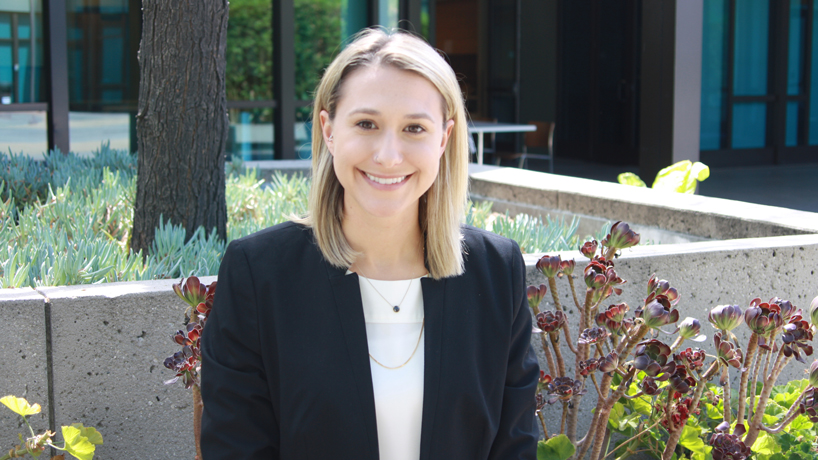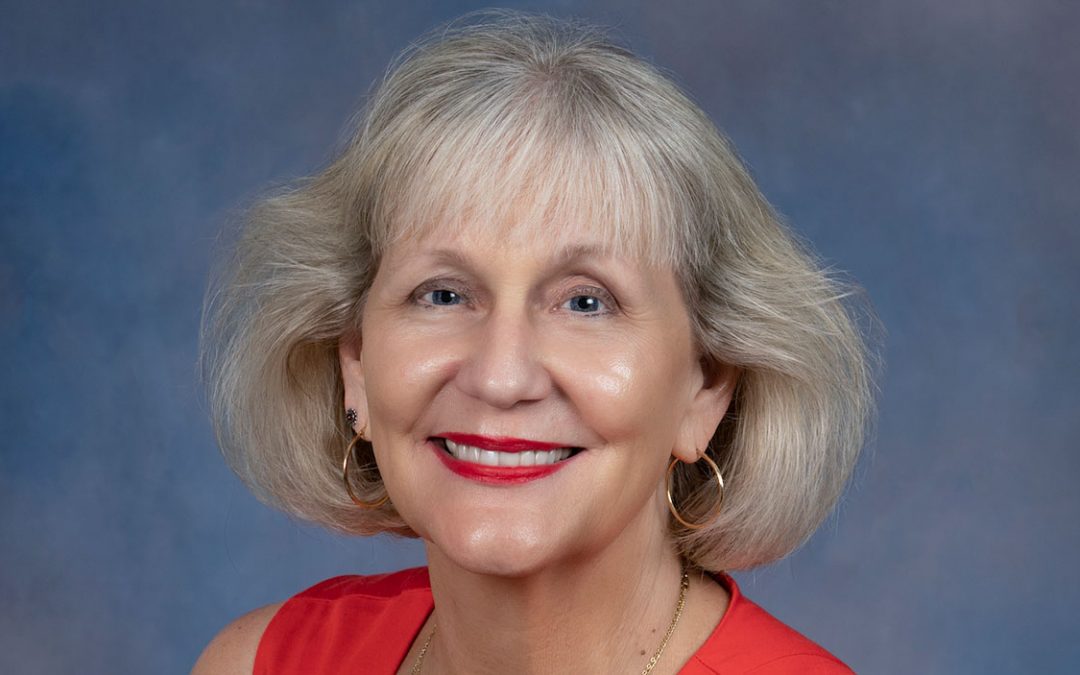
Clara Karger, who earned her MEd from UMSL in 2015, is part of the latest highly selective cohort of the Coro Fellowship in Public Affairs, an experiential leadership training program that counts current U.S. senators among its alumni. (Photo courtesy of Clara Karger)
Clara Karger loved working as a St. Louis Public Schools teacher.
Through Teach for America, she started at Mason Elementary School on the southwest side of the city in 2013 and taught kindergarten, first and third grade over three years before transitioning to Jefferson Elementary School, on the north side, in 2016.
Though she treasured the connections she was making with the community, she also felt like she had little control over the forces powering the inequity faced by her students on a daily basis.
“I definitely saw the impact of what was happening outside of my school’s four walls competing with the great work teachers and administrators were doing inside of our schools,” said Karger, who earned her MEd in elementary education from the University of Missouri–St. Louis in 2015. “I wanted to better understand what it would take to create systemic change for communities that I cared about.”
That was one of the main reasons Karger applied for a public affairs fellowship with Coro Southern California. Coro, a nonprofit founded in 1942, offers 12 highly selective fellowship slots annually in five locations – San Francisco, Los Angeles, St. Louis, New York and Pittsburgh – that focus on experiential leadership training.
The program counts current senators Michael Bennet, Dianne Feinstein and Tim Kaine among its alumni. Karger’s class of Southern California fellows began the program in the fall and will finish up in early June.
She said she planned on applying for the fellowship in St. Louis but had to change plans and move back home to California to help take care of a critically ill family member. He passed away last summer.
“Sometimes life has a different plan for you,” Karger said. “I’m thankful that I came home when I did, before he passed away. It’s one of those situations where I made the right choice, even though it flipped my life upside down.”
Karger’s time in the Coro fellowship has been split between placements with organizations in five different sectors: public sector, private sector, electoral politics, nonprofits and labor. Between each placement, fellows take part in “focus weeks” that key in on specific issue areas.
The Southern California cohort has taken deep dives into subjects such as transportation, communications and housing development and land use.
“Inquiry is really key to the fellowship. We learn the power of asking thoughtful questions,” Karger said. “We’ve probably done close to 200 interviews by now. The subject of the housing focus week was interviewing experts across sectors. We broke into small teams and developed our own solutions to an aspect of the housing problem, then we pitched our solutions at an innovation challenge-type forum.”
Karger has a three-month stint at the High Lantern Group strategic communications consulting firm lined up after the end of the fellowship. In the future, she has a desire to return to St. Louis and education.
She advanced her knowledge of literacy instruction through a partnership between UMSL and St. Louis Public Schools after the completion of her two-year commitment with Teach for America and used it to expand a district reading program to Jefferson, training teachers at the school on instructional techniques. Karger said that, growing up in Orange County, she always had a sense of the educational opportunities she enjoyed that were not available to students at lower socioeconomic levels.
Her coursework at UMSL and her time teaching in St. Louis opened her eyes even further.
“We did quite a bit of identity reflection in our classes to consider how we might have unconscious bias as educators and what that would bring to a classroom,” Karger said. “The opportunity to live my passion was very valuable. It was a purposeful way to think about what I cared about: issues related to equity and how that would impact students and their experience in schools I taught.”
The time with Coro has reinforced for Karger that, while group input and collaboration is crucial for coming up with meaningful solutions, she also needs to be confident in the unique insights and experience she brings to the table.
“It’s this idea that being a leader involves bringing the best of your holistic self to your work and being mindful about how well you’re taking care of yourself,” Karger said. “The fellowship has opened my eyes to the immense number of ways I can make impacts and connect it back to the schoolhouse. The fellowship has taught me to be present and fully experience what’s happening right now – the balance of looking forward while being where I am.”














